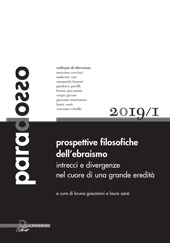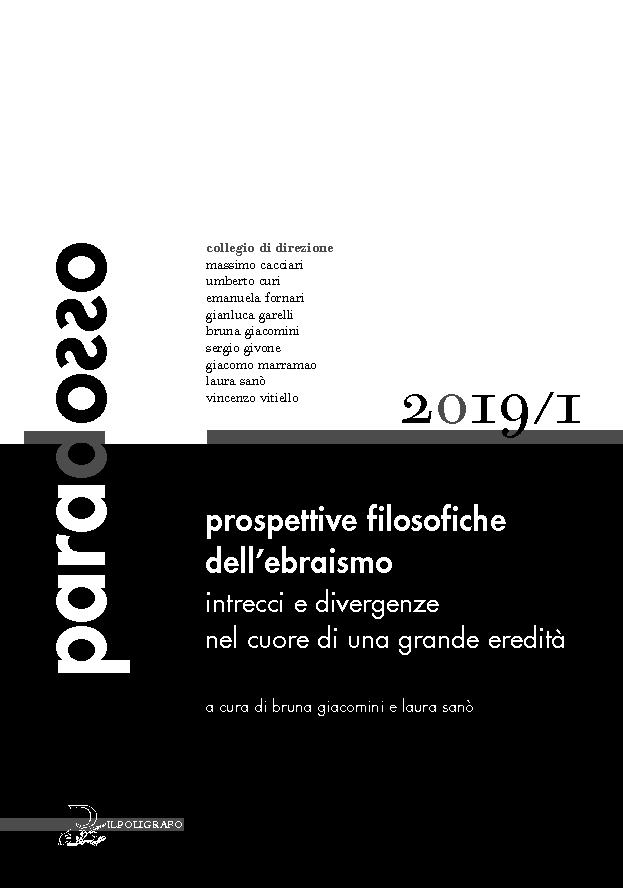Vegliare sull'estremo : alcune tematiche ebraiche nel pensiero di Maurice Blanchot
P. 63-77
The paper analyses the connection between Maurice Blanchot's philosophy and Jewish thought. Starting from a juvenile antisemitism expressed by Blanchot in some political articles of the thirties, the essay shows how the experience of World War II leads Blanchot to a deep reconsideration of Judaism, which is based on the study of Kafka and the confrontation with Levinas. Against the idea of Judaism as pure negativity, Blanchot aims to describe positively the fact of "being Jewish", so he claims that the exiled Jew and the notion of Exodus share the same call from outside that characterizes human existence. The "outside" of being, therefore, represents the positive value of Judaism as extreme otherness. In conclusion, Blanchotian interpretation of Judaism engenders a new concept of truth as temporary (divine errancy) and it provides a definitive checkmate to the western concept of identity. [Publisher's text]
Is part of
Paradosso : rivista di filosofia : 1, 2019-
Articles from the same issue (available individually)
-
Information
ISBN: 9788893871013
ISSN: 2704-7091



